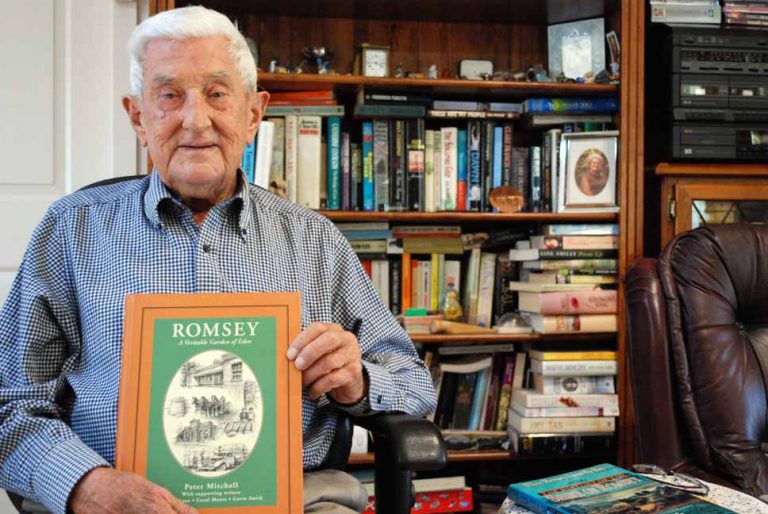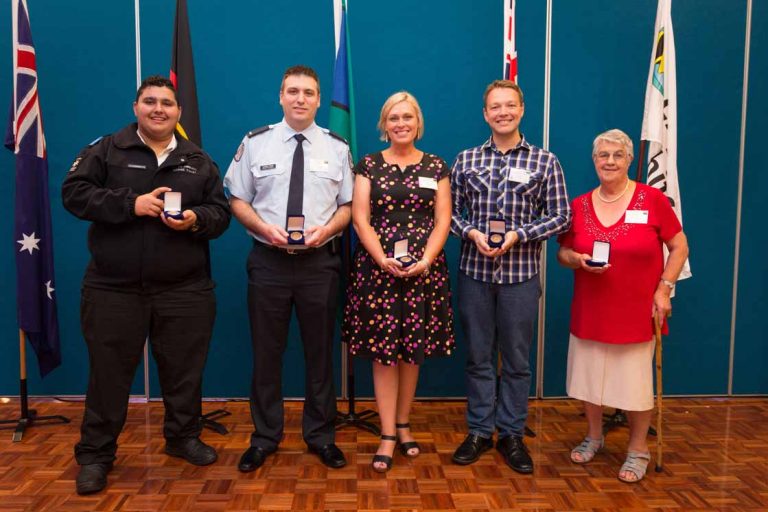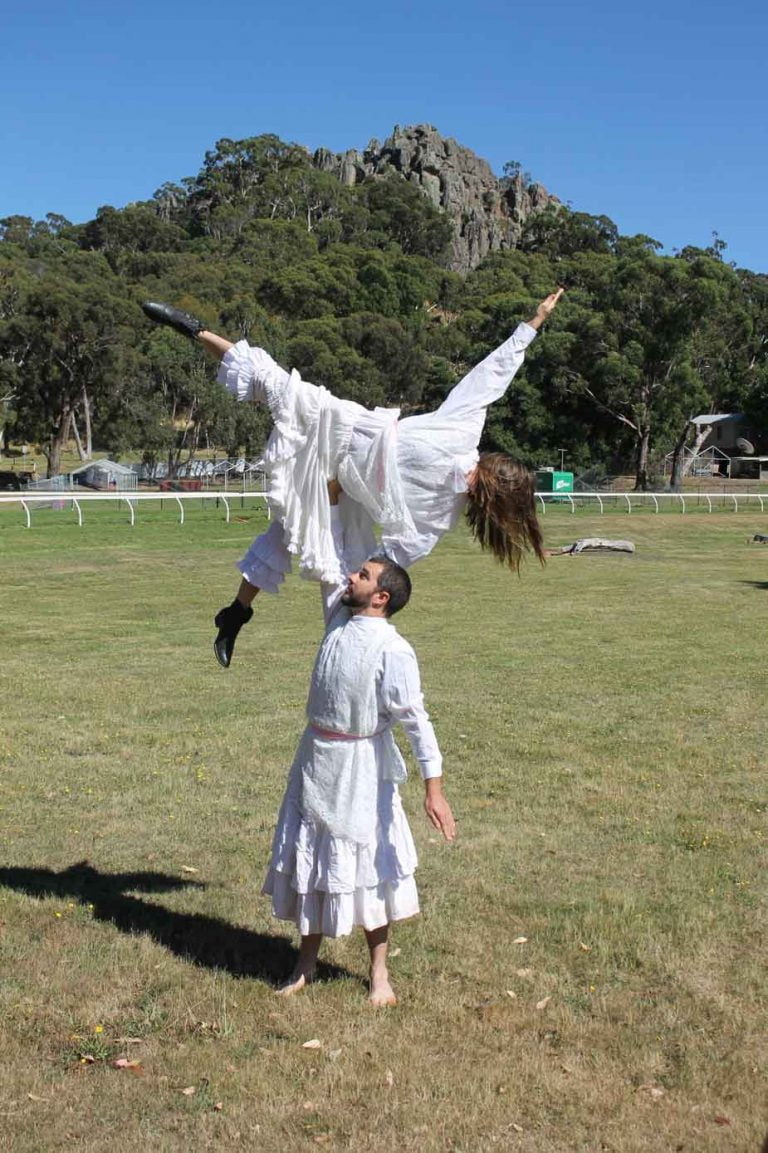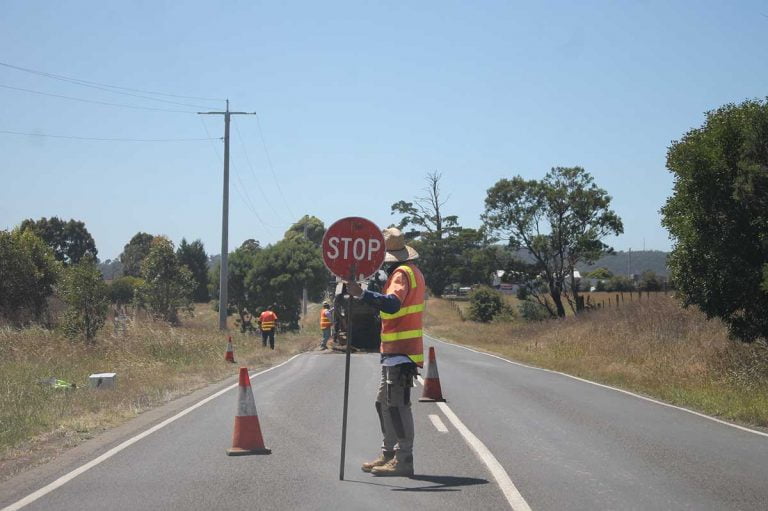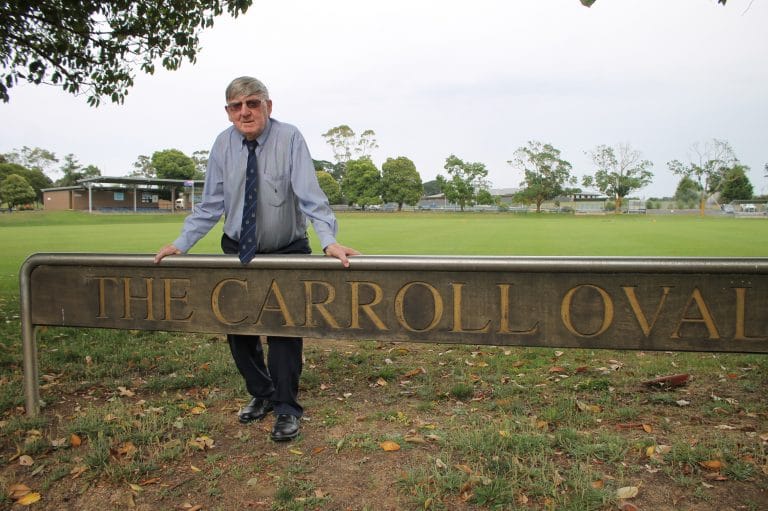By Joshua Wells
VICTORIA’S country road network is under the spotlight after an inquiry was established to determine how regional roads are being managed.
Residents in the North Central region have left a barrage of complaints about the maintenance works VicRoads are undertaking on the Wallan exit along the Hume Freeway and the Kilmore-Lancefield Road.
Community members like Donna Lawrence have expressed their disappointment at everything from tar on their cars to the condition of the roads people drive on every day.
“I am not happy with tar on my car,” Wallan’s Ms Lawrence said.
“It is disgusting. They do little patch up jobs and now they are going back over the works. They have definitely done a poor job in the past.”
“We need to fix the infrastructure properly before someone gets seriously injured that is what it boils down to… they need to pour more funding into it and it isn’t good enough at the moment.”
While community members vent their frustrations about tar, delays and potholes, VicRoads Northern Regional director Brian Westley said country Victorians were being listened to.
“Last year, we spoke to more than 11,000 country Victorians right across the state and we’re now rolling out a number of programs to make country roads safer,” he said.
“A $260 million maintenance boost from the Victorian Government will help us to rebuild more than 850 kilometres of deteriorating roads in regional areas.
“Work is ramping up in every region, from major highway duplications to improved signage and road safety treatments that will significantly reduce run off road or head-on crashes on major rural highways.”
“We’ll also be modernising our regional road network with a new approach to prioritising road upgrades that considers economic benefits and regional priorities, as well as a review of road signage across the state.”
A PARLIMENTARY inquiry has been launched to understand just how VicRoads has managed country roads.
The roads have become a focal point for residents across the region in recent times.
Victoria Police also released data confirming country roads was recording higher numbers of road deaths when compared to the city.
The Law Reform, Road and Community Safety Committee are currently examining a number of issues which will form part of the VicRoads inquiry, including how effect the organisation is, the existing funding model and how regional residents are consulted.
Committee chair Geoff Howard said this was an important step toward helping reduce the deterioration of Victorian roads.
“This is an important inquiry for communities across Victoria who relies on well-maintained country roads in the conduct of their daily lives,” he said.
“As part of the inquiry’s terms of reference, the Committee is looking into the option of creating a specific Country Roads organisation and a separate Metropolitan Roads body.
“The Committee will be considering how country roads should be managed into the future, to ensure that the needs of people throughout regional Victoria are being met.
“Through the submissions we receive and the public hearings we hold, the Committee will be collecting evidence from people across Victoria.”
VicRoads last year launched the Pavement Management Strategic Plan to try plan a coordinated response to deteriorating roads.
With a population growth by more than 2 per cent each year, adding more cars than ever before, the plan is hoping to identify critical, needed and desired works.
While some are concerned about the state of the roads, Member for Northern Victoria Jaclyn Symes said she is satisfied with VicRoads’ approach to communicating with the region about their approach to roadworks.
“Across the board, VicRoads have been getting out and about listening to the people,” she said.”
“They explained to me that by doing this they are given a great understanding of the more important roads and what people think.”
“But they understand it is important for the community to understand what is happening and why.”
VicRoads attended workshops regularly around the state last year, taking them as far north as the Mallee.
But while the management of VicRoads were able to speak to some people, Member for Euroa Steph Ryan said members of her community are still raising concerns with her regularly.
“The issues are significant and are brought up to me right across the region,” she said.
“In fact, people’s concern about the deteriorating roads is the most common thing people contact me about, so it is huge.
“For a long time we have been saying fixing the roads will save country lives… county Victorians are over represented in the road toll.”




